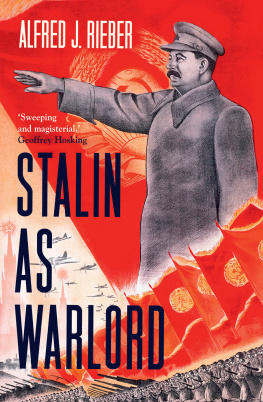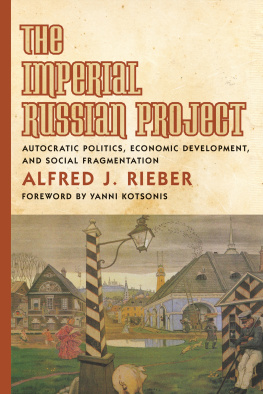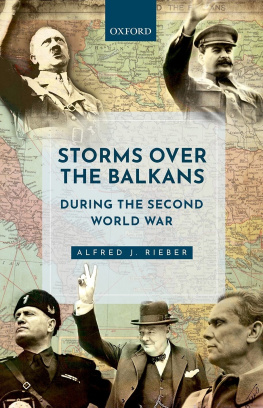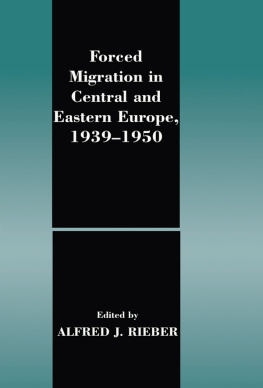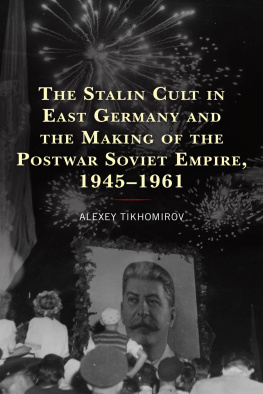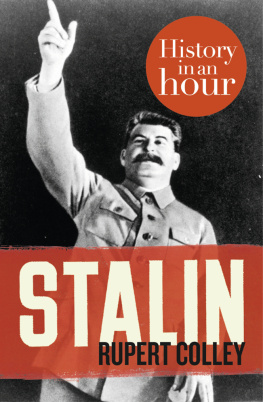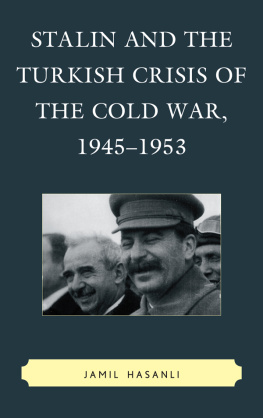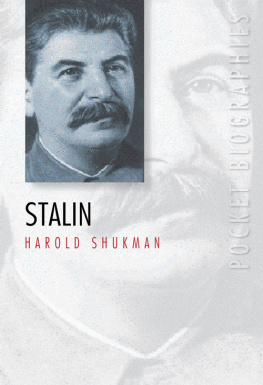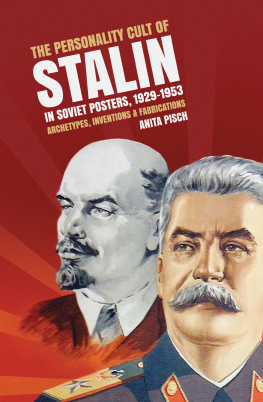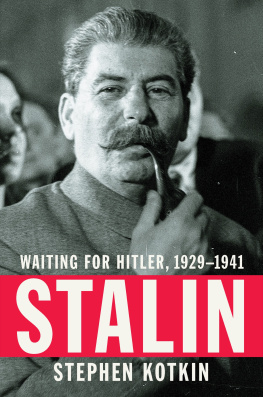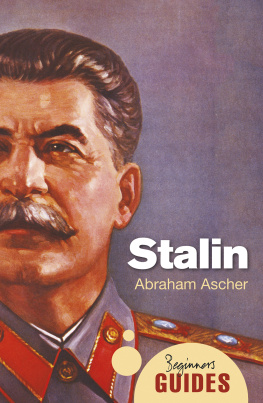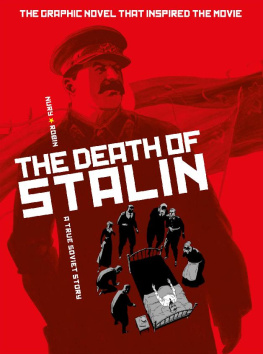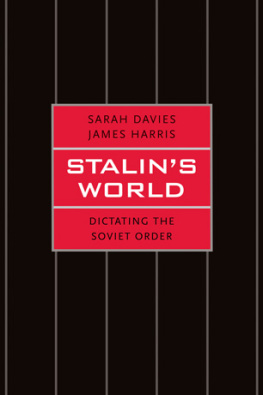STALIN AS WARLORD

Copyright 2022 Alfred J. Rieber
All rights reserved. This book may not be reproduced in whole or in part, in any form (beyond that copying permitted by Sections 107 and 108 of the U.S. Copyright Law and except by reviewers for the public press) without written permission from the publishers.
All reasonable efforts have been made to provide accurate sources for all images that appear in this book. Any discrepancies or omissions will be rectified in future editions.
For information about this and other Yale University Press publications, please contact:
U.S. Office:
Europe Office:
Set in Minion Pro by IDSUK (DataConnection) Ltd
Printed in Great Britain by TJ Books, Padstow, Cornwall
Library of Congress Control Number: 2022939648
e-ISBN 978-0-300-26900-0
A catalogue record for this book is available from the British Library.
10 9 8 7 6 5 4 3 2 1
For Marsha, toujours
There can be no revolutionary action without revolutionary theory.
Lenin, What Is to Be Done?
Grey is theory, my friend; but green is the tree of life.
Lenin, quoting Goethes Faust
You have to take Stalin according to periods of time; he was different. After the war you have one Stalin before the war another. Between nineteen thirty-two and the forties still another. Before 1932 he was completely different. He changed. I saw no fewer than five or six Stalins.
Kaganovich, interviewed by Feliks Chuev
CONTENTS
ILLUSTRATIONS
PLATES
ACKNOWLEDGEMENTS
The sources for this book were gathered over many years, often for other projects and purposes. My initial interest in the war on the eastern front stemmed from the suggestion of my beloved fifth-grade teacher, Mrs Fass, to start a scrapbook on the conflict. Over the next four years I filled twenty-seven such books with clippings from newspapers and illustrated magazines of texts, maps and images, many related to the Russian experience in the war. I continued this interest throughout college and graduate school, making my first visit in January 1956 to the Soviet Union, where I encountered first-hand the devasting consequences of the conflict on ordinary peoples lives. As a participant in the first year of the USSoviet cultural exchange in 195859, these impressions were deepened by personal contacts and lasting friendships with Soviet citizens of several generations and different ethnic origins who had survived the war. I am very much indebted to them for sharing their experiences and memories, however painful they were. In the absence of access to archives, I sought to shed light indirectly on Stalins role in my doctoral dissertation, revised as a monograph, Stalin and the French Communist Party, 19411947 (Columbia University Press, 1962). It was only after the opening of the archives in 1991 that I was able to return to the subject that has preoccupied me ever since.
My appreciation for research support extends, therefore, to a large number of sponsors, including IREX, the American Council of Learned Societies, the Ford Foundation, the Collegium Budapest, St Antonys College, Oxford, and several research grants from the Central European University in Budapest. My thanks go to Ulf Brunnbauer, Oleg Budnitskii and Silvio Pons for invitations to deliver papers at the Leibniz Institute for East and Southeast European Studies at the University of Regensburg, on Stalinism and War at the Higher School of Economics in Moscow, and the Conference on Rethinking Communist History at the Fondazione Gramsci in Rome. I am especially grateful to the staff of the Central European University Library, in particular to Vit Lucas, who tracked down with great energy and ingenuity numerous articles and collections that otherwise would have been unavailable to me. In Russia, I benefited from the assistance of archivists at the Gosudarstvennyi arkhiv rossiiskoi federatsii, Arkhiv vneshnei politiki rossiiskoi federatsii and Rossiiskii gosudarstvennyi arkhiv sotsialno-politicheskoi istorii. I am indebted to Geoffrey Roberts, who encouraged me at an early stage in the writing and suggested the title; to Mark Harrison who answered questions and helped further my research into the career of Nikolai Voznesensky; to Giovanni Cadioli for sharing with me his research on Voznesensky; to Loren Graham who read and commented on an early draft of the chapter on the scientific and technical intelligentsia; to David Holloway for insights into Soviet intelligence and recent references to the atomic bomb project; to James Heinzen for references; to Marsha Siefert for her insights into Soviet cultural affairs, her unfailing tolerance with my long preoccupation with Stalin, her rapid response to my frantic calls for computer first aid, and her abiding love. The two anonymous reviewers for Yale University Press offered stimulating suggestions. My editor Joanna Godfrey was supportive at all stages, providing a critical assessment of the entire manuscript. The entire production staff of Yale University Press contributed in many ways to improving the quality of the book, with special thanks to Jacob Blandy for his meticulous copy-editing. For the errors which may remain, I alone am responsible.
PREFACE
It happens, on occasion, that a historian accustomed to toiling in the archives will be struck by a small incident that sheds more light on the murky world of politics than any single document. In my case such an incident occurred many years ago at an intimate dinner party in Moscow where the guest of honour was Ivy Litvinov, the English-born author and wife of the former commissar of foreign affairs, Maksim Litvinov. I had brought her as a gift a few novels by contemporary American writers. Her first words to me were: I hope you are not one of those who are fooled by this place. Then she examined the books, carefully reading the first page of each one before setting it aside. Oh, she said, these are not for me. Lets talk about Jane Austen. In the course of a rather one-sided conversation, she mentioned that she used to read Austen during bridge games when she ended up, more often than not, as the dummy partner. The other three habitual players were her husband Maksim, Petr Kapitsa and Jen Varga. She did not say, but I wondered what these friends had in common besides being devotees of an English card game. Upon reflection, it became clear. They had all spent years of their life abroad: Litvinov before the First World War as a self-imposed revolutionary exile in England (where he had met and married Ivy); Kapitsa, another exile in England, where he spent seven years at Rutherfords laboratory at Cambridge between the wars; Varga another exile, but from Hungary, where he had been a leading figure in the abortive revolution of 1919 before fleeing to the Soviet Union. In the course of their careers, they had all served Stalin loyally, Litvinov as a diplomat, Kapitsa as a scientist and Varga as an economist. But they were also from time to time forthright critics of his policies. In the end, they had all suffered demotion; Litvinov fired as foreign commissar, Kapitsa dismissed as head of the Institute of Physics and Varga removed as head of the Institute of World Politics and World Economics, which was then abolished after the war. They had all come under heavy attack on ideological grounds from their opponents in the Communist Party. Yet they were never arrested; they all survived. As I stepped out into that cold winter night in Moscow, I thought How extraordinary! The diplomat, the scientist and the economist, all loyal to Stalin, but critical of policies he adopted, belonging to categories most distrusted by Stalin: Litvinov Jewish and married to a foreigner, Varga Jewish and a foreigner, and Kapitsa a longtime resident abroad and admirer of Great Britain. All of them demoted from their honoured positions yet survivors to the natural end of their lives. How could these apparent contradictions and inconsistencies be resolved? The search for answers led me to the idea of the paradox of Stalins power.
Next page
